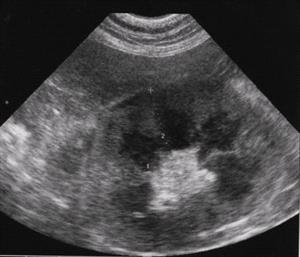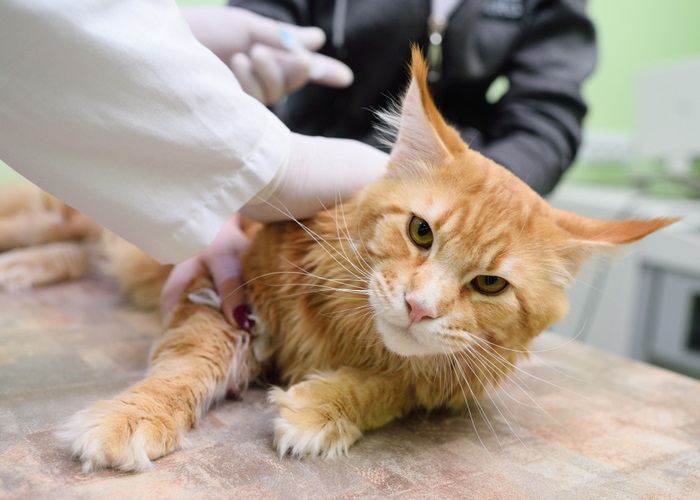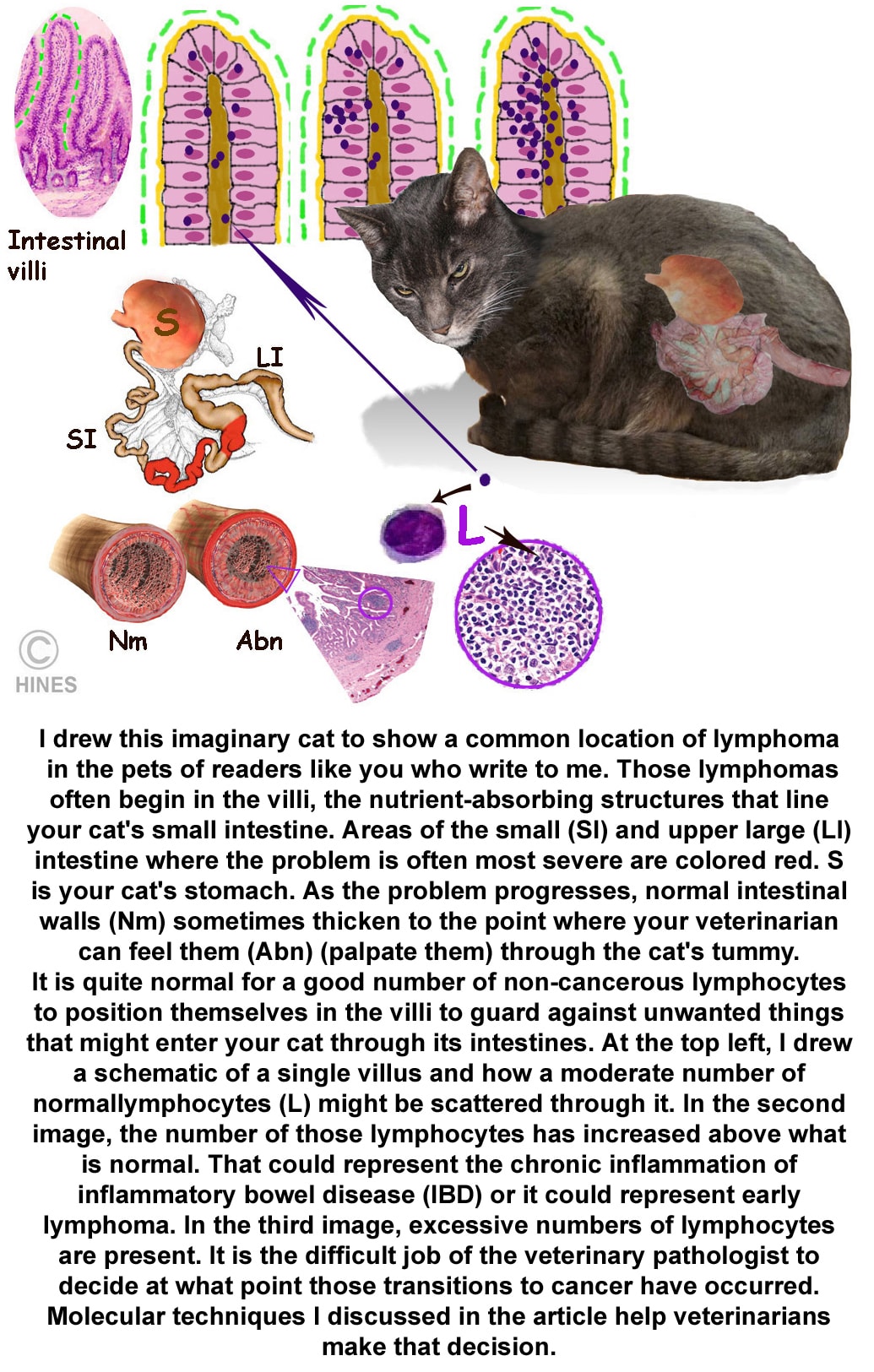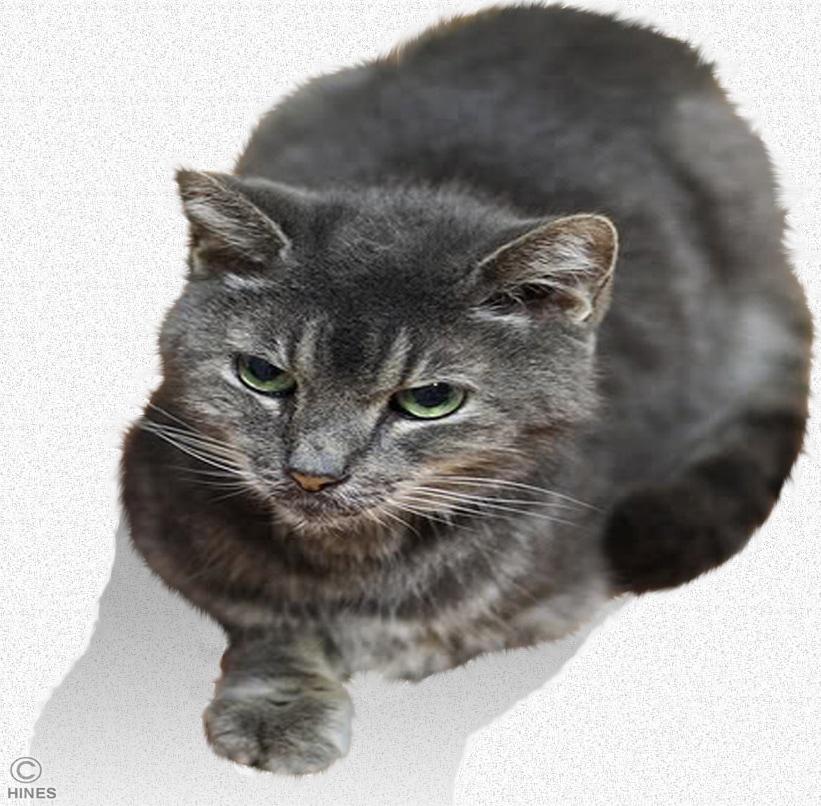gastric lymphoma in cats
Most cats are feline leukemia virus-negative and feline immunodeficiency virus-negative. And recent studies have indicated that cats routinely exposed to tobacco smoke are at elevated risk for gastrointestinal lymphoma.

Causes And Risks Of Cat Lymphoma And Leukemia Vlog 97 Youtube
Common Sites Of Lymphoma In Cats Alimentary or Intestinal Lymphoma By far the most common lymphoma in cats this type of lymphoma affects the guts.

. Gastric lymphoma or lymphoma of the stomach can occur as a single isolated mass within the stomach wall or it may be a component of more widespread lymphoma affecting the entire gastrointestinal tract. Feline GI lymphoma appears to occur as one of two major types with a portion of cats being affected by a more indolent small-cell lymphocytic form of lymphoma and others having a more aggressive large-cell lymphoblastic form of lymphoma. The purposes of this study were to describe cases of feline gastric lymphoma with regards to signalment clinical presentation laboratory and ancillary study findings response to therapy and outcomes and to identify prognostic variables.
Overall first remission duration was 108 days. Even the tumor itself bleeds as well. Low-grade gastrointestinal lymphoma may be more common than previously thought and these cats respond better to chemotherapy agents than cats with.
Lymphoma in cats is the gastrointestinal tract. Renal Lymphoma Lymphoma. When your cat has this disease its important to recognize and understand the end stages and to.
Feline lymphoma or lymphosarcoma is the most common form of cancer in cats. Appetite loss Weight loss Vomiting Diarrhea. This type of lymphoma is linked to nearly 70 of cases in cats source and is most common in seniors ranging from 10-13 years old.
Most commonly it affects the small intestine but it can also involve any part of the gastrointestinal tract from the rectum to the esophagus. Intestinal lymphomas usually cause poor eating weight loss diarrhea and vomiting. Intestinal lymphoma is the most common form of lymphoma in cats.
Managing feline gastrointestinal lymphoma Proceedings Important Considerations For Diagnosis Of GI Lymphoma. The most common type of stomach cancer in cats is lymphoma. Indications for surgery in cats with GI lymphoma are gastrointestinal obstruction gastrointestinal perforation.
Intestinal lymphoma originates in the GI tract and will often be accompanied by severe gastrointestinal symptoms. This particular type of cancer is known for more frequently affecting cats with the feline infectious virus FeLV because the immune system is already compromised. Vet formulated to support your pets complete body in the fight against cancer.
Some of the most common symptoms of feline gastrointestinal lymphoma include. Intestinal Lymphoma in Cats. Feline gastrointestinal tract lymphoma immunohistochemistry lymphocyte antigen receptor gene rearrangement CD3 CD79a granzyme B Lymphoma is the most common hemopoietic neoplasm in the cat and the incidence is reported to be the highest for any species592127 Since the decline in the United States in the incidence of feline leukemia virus FeLV.
Gastro lymphoma in cats. The blood tests are often normal but ultrasound of the abdomen may show thickened intestines enlarged abdominal lymph nodes and tumors. Loss of appetite.
Unvaccinated outdoor cats are at greater risk than indoor cats due to their greater exposure to FeLV infection. Weight loss Alimentary form occurs in the gastrointestinal tract abdomen liver Anorexia. Black or tarry stool.
Cats of any age can develop lymphoma although most affected animals are 10 to 12 years of age. A retrospective study of feline gastric lymphoma in 16 chemotherapy-treated cats. Lymphoma in cats is now most commonly seen in the intestines.
Response to treatment was prognostic as in other types of feline lymphoma. Eventually the disease will be fatal. While it can affect the entire body one type of feline lymphoma that affects the gastrointestinal tract is the most common making up approximately 23 of all cases.
Sixteen cats with stage I and II gastric lymphoma treated with chemotherapy were included in this study. Its highly treatable but incurable. It is perhaps one of the most common types of all cancer associated with cats.
Lymphoma in cats is often divided into categories depending on the area of the body it affects intestinal renal or mediastinal or into the size and severity of the cancer small cell. Gastrointestinal lymphoma is one of the most common types of lymphoma in cats. Following are some forms of lymphoma along with the related symptoms in cats.
In most cases the cause of a cats lymphoma is unknown. Histopathologic Types Clinical Presentation Diagnosis and Staging As more studies have examined our ability to diagnose lymphoma in cats using cytology histopathology immunohistochemistry andor PCR testing for antigen receptor rearrangement conflicting reports have. 48 Treatment of large-cell feline GI lymphoma with multiagent chemotherapy protocols has led to median remission durations of.
Gastrointestinal lymphoma in cats is a form of alimentary cancer which occurs in the intestinal tract of a cat. Definitive diagnosis of gastrointestinal lymphoma requires. Feline gastric lymphoma which is also commonly referred to as Gastrointestinal Lymphoma or GI Lymphoma is a malignant cancerous tumor that disrupts the normal lining of the cats stomach causing erosion of the stomach lining and even ulcers that will bleed.
Over time it can. Unfortunately gastrointestinal lymphoma in cats isnt curable but with effective treatment many cats can. Feline gastrointestinal lymphoma.
This is a spectrum of diseases including low grade lymphoma high grade lymphoma and large granular lymphocyte lymphoma LGL. Mediastinal Lymphoma This type of lymphoma grows in your cats chest usually between their lungs. As this blood is coming from further up in the digestive tract the cats body is digesting.
Mediastinal form occurs in the space between the pleural sacslungs Open mouth breathing. This disease can therefore vary from something which cats can live with for some time without illness to a rapidly progressive and fatal condition. Ad Help your pet fight cancer with NHVs most popular Cancer Pack.
Gastrointestinal lymphoma is a common cause of anorexia and weight loss in older cats with or without vomiting or diarrhea. Seventy-five percent of cats experienced remission.

Focus On Feline Gastroenterology Today S Veterinary Practice

Read About Gastroenterology In This Article By Sandra Grover

Lymphoma In Cats Veterinary Partner Vin

How To Diagnose Feline Intestinal Lymphoma 9 Steps

Read About Gastroenterology In This Article By Sandra Grover

Lymphoma In Cats Veterinary Partner Vin

Ultrasonographic Images Of A Cat With Gastric And Jejunal High Grade Download Scientific Diagram

Figure 3 From Extranodal Lymphoma In The Cat Semantic Scholar

Lymphoma In Cats Atlantic Veterinary Internal Medicine

Fur Everywhere Lymphoma In Cats
Tigger And Is It Ibd Or Lymphoma Wild Rose Cat Clinic Of Calgary

How To Diagnose Feline Intestinal Lymphoma 9 Steps

Extranodal Lymphoma In The Cat Semantic Scholar

Feline Lymphoma In The Spinal Cord A Lymphoma In The Cervical Download Scientific Diagram

Lymphoma In Cats Symptoms Diagnosis Treatment All About Cats

